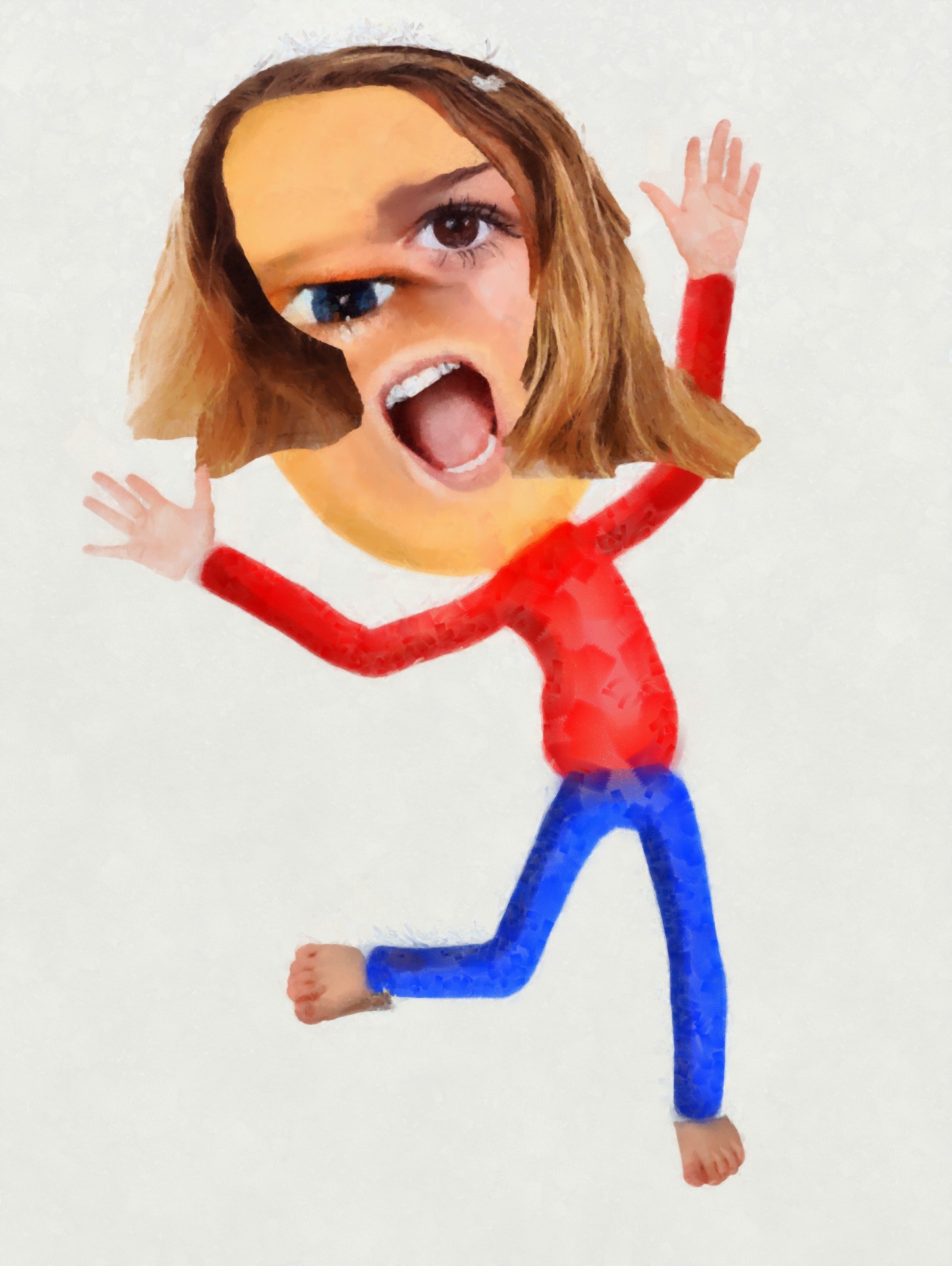Crazy Writing Week - Embracing The Wild Creative Flow
Have you ever found yourself in a stretch of days where the words just seem to pour out, where ideas come at you from all directions, and the lines between day and night blur into one continuous, intense creative push? This, perhaps, is what we might call a crazy writing week, a period when the usual rules of a balanced life seem to take a backseat to the sheer force of getting thoughts onto the page. It’s a time when the mind feels a little different, maybe even a bit unbound, as if operating on a unique frequency.
Such a week often feels like an experience that lacks a certain typical reason, in some respects. You might find yourself doing things that seem a little strange to others, or even to yourself, like working through the night or forgetting meals. It’s a time when the usual structure of daily living gets set aside, making room for a kind of wild, focused energy that takes over. This isn't about being unwell, no, but more about a complete absorption in the task at hand, a total dedication to the written word.
Indeed, when we talk about a "crazy" writing week, we're not speaking of someone who is truly out of touch with reality. Instead, we're talking about a behavior that might appear unconventional, or perhaps a thought process that seems a little wild to those looking in from the outside. It's the kind of intense focus that makes others wonder, "Are they really okay?" but for the writer, it's often a sign of deep connection to their work, a period of genuine creative outpouring that just feels incredibly powerful, actually.
- Tess Dinerstein White Horse
- Is Emily Compagno Married
- Thanos Actor Age Squid Game
- Ymaal
- Paleseafoam Leaks Of
Table of Contents
- What Makes a Writing Week Go a Little Wild?
- Is This Crazy Writing Week Truly Unsound?
- When Does Passion Turn Into a Crazy Writing Week?
- How Do Others See Your Crazy Writing Week?
- The Marks of a Very Intense Writing Period
- Finding Method in the Crazy Writing Week
- More Than Just Strange Ideas - A Crazy Writing Week
- The Ups and Downs of a Crazy Writing Week
What Makes a Writing Week Go a Little Wild?
A writing week can take on a life of its own, often feeling like a sprint rather than a gentle stroll. It's when the usual boundaries of time and energy seem to stretch and warp, making room for an almost frantic pace of creation. This might involve setting ambitious goals, like finishing a large chunk of a book or drafting a series of articles in a short burst. You know, it's that feeling where you just can't stop, where the words keep coming, and you feel compelled to capture every single one before it slips away.
Sometimes, this wildness comes from a sudden wave of fresh ideas, like new games being added every day, each one sparking another thought. It’s as if your mind becomes a playground of concepts, and you’re trying to catch them all before they vanish. This can lead to a period where your thoughts race, and you might find it difficult to slow down, even when you try. It's honestly a pretty exhilarating experience, though it can be a bit tiring too.
The sheer volume of output can also contribute to the "crazy" feeling of a writing week. When you look back at what you’ve produced, it might seem like an impossible feat for such a short period. This intense output often means letting go of perfectionism and just letting the words flow, which can feel liberating but also a little out of control, in a good way. It's a time when you really push your limits, more or less, and see what you are capable of doing.
- Roma Downey Feet
- Sotwe T%C3%BCrkk
- Exploring Malachi Bartons Relationships The Young Stars Personal Connections
- Which Country Colonized Iran
- Is Riley Green A Republican Or Democrat
Is This Crazy Writing Week Truly Unsound?
When we use words like "crazy" to describe a writing week, it's important to remember that we're using them in a very informal sense, not suggesting anything about mental well-being. The definition of "crazy" often points to something not mentally sound, or marked by actions that lack reason. However, in the context of a writer deeply immersed in their craft, these intense periods are far from unsound. They are, in fact, often a sign of peak creative performance, a moment when the mind is fully engaged and firing on all cylinders, as a matter of fact.
A writer might appear to be "mentally deranged" to an outsider during such a week because their actions might seem odd. They might be talking to themselves, pacing, or staring blankly at a wall for long stretches, lost in thought. Yet, these behaviors are simply part of a deep process, a way of getting into the story or the argument. It's just a different kind of focus, you know, one that might not look typical from the outside.
The "lack of reason" that some might perceive is often just a different kind of logic at play. A writer might follow a creative impulse that doesn't seem to make sense to anyone else, but for them, it's the thread that leads to a breakthrough. It's a way of working that is deeply intuitive, perhaps, and less about following a rigid plan. So, while it might seem a bit off-kilter, it's actually a very purposeful approach to making something new.
When Does Passion Turn Into a Crazy Writing Week?
For some, the intensity of a writing week isn't seen as "crazy" in a negative way at all, but rather as "appropriately passionate." This is when the deep love for writing takes over, pushing you to work beyond what might be considered normal hours or typical effort. It's a period where the drive to create becomes so strong that it shapes your entire schedule, and everything else seems to fade into the background. This kind of passion is what fuels those truly productive bursts, basically.
This kind of intense focus, powered by a genuine love for the work, can lead to what looks like "strange or out of control" behavior to those around you. You might find yourself neglecting chores, forgetting to call friends, or even skipping meals because you are so absorbed in the world you are building with words. It's not a lack of care, but a complete immersion, a single-minded pursuit of the story or article that just has to get out. It's pretty common for writers, actually.
The moment passion transforms into a "crazy writing week" is often when the internal drive becomes so powerful that it overrides external distractions. It's when the ideas are so compelling, and the flow is so strong, that you simply cannot pull yourself away. This isn't about being irrational; it's about being incredibly dedicated, perhaps even obsessed in the best possible sense. It’s like your mind is just completely taken by the task, and you’re just going with it, really.
How Do Others See Your Crazy Writing Week?
It's interesting to consider how others might view your "crazy writing week." If you describe someone or something as crazy, you might think they are very foolish or strange. Your friends or family might see your intense focus, your late nights, or your sudden bursts of energy and wonder if you've lost your mind a little bit. They might even playfully ask if you've met "the crazy old lady upstairs" in reference to your own intense habits. This is a common reaction when someone is deeply, deeply committed to a creative pursuit, you know.
There's a historical parallel here, too. People once thought those who tried to make money from manufacturing were all crazy, simply for attempting something so new and seemingly absurd. Similarly, those outside the creative world might not grasp the intense, sometimes frantic, energy required to produce something substantial. They might see the disarray of your workspace or your unusual hours and think it's a bit foolish, or perhaps even a little strange. But for the writer, it's just how the work gets done, in a way.
Ultimately, how others see your "crazy writing week" often depends on their own understanding of creative work. Some will see the passion and dedication, while others might only see the unusual behavior. It's a reminder that what seems like an "unsound mind" to one person is simply a highly focused, deeply engaged mind to another. It's all about perspective, essentially, and how you choose to look at the process.
The Marks of a Very Intense Writing Period
A truly intense writing period leaves its own unique set of marks, both on the work itself and on the writer. You might find yourself thinking about your project almost constantly, even when you're not at your keyboard. Ideas might pop into your head at odd times, like when you're making coffee or trying to fall asleep. This constant mental engagement is a sure sign that you are in the thick of a "crazy writing week," where your project becomes the main thing on your mind, pretty much.
The physical environment around you can also start to reflect this intensity. Piles of research materials might grow, coffee cups might multiply, and the general tidiness of your space might take a temporary hit. These external signs are often just a visible representation of the internal storm of ideas and words that you're wrestling with. It's not a sign of neglect, but rather of prioritization, of putting the writing first above all else, at the end of the day.
Another common mark is the feeling of time bending. Hours can feel like minutes when you're in a flow state, and suddenly, it's dawn when you thought it was still evening. This loss of track of time is a clear indicator of deep immersion, a state where your focus is so complete that the outside world fades away. It’s a very common experience for writers during these kinds of intense bursts, you know.
Finding Method in the Crazy Writing Week
Despite the appearance of being "out of control," there's often a hidden method within a "crazy writing week." It might not be a traditional, step-by-step plan, but rather an intuitive rhythm that the writer falls into. This could involve writing in short, intense bursts followed by brief periods of rest, or working on different parts of the project as inspiration strikes. It's a personal system that just works for that particular period, even if it looks a bit messy from the outside, frankly.
This method often involves a willingness to experiment and to let go of rigid expectations. You might try out different approaches to a scene or a chapter, even if they seem a bit unconventional. The idea is to keep the momentum going, to keep adding new words every day, and to not get bogged down by trying to make everything perfect on the first try. It’s about allowing for a bit of creative chaos, perhaps, to see what emerges from it.
Sometimes, the method is simply about showing up and doing the work, even when it feels difficult or when the ideas seem to run dry. It’s about pushing through those moments of resistance, knowing that on the other side, there might be a breakthrough. This perseverance, even when the process feels a bit wild, is a key part of finding success in such an intense period. It’s a pretty powerful way to get things done, actually.
More Than Just Strange Ideas - A Crazy Writing Week
A "crazy writing week" is about more than just having strange or unusual ideas; it's about the entire experience of being consumed by a creative project. While wild ideas certainly play a part, the "crazy" also refers to the unusual behaviors and intense focus that accompany such a period. It's a holistic experience where the writer's entire being seems to be dedicated to the act of putting words down. It’s a kind of total absorption, you know.
The feeling of being "of unsound mind" or "insane" in this context is often a playful exaggeration of the deep mental state a writer enters. It's the feeling of being so deep in a story that the characters feel more real than the people around you, or the arguments you're constructing feel more urgent than anything else. This level of immersion can be both frightening and exhilarating, pushing the boundaries of what you thought you were capable of creating, as a matter of fact.
It's also about the willingness to embrace the unconventional. A writer might come up with plot twists that seem outlandish, or arguments that challenge common beliefs. This willingness to push boundaries and explore the less-traveled paths is a hallmark of these intense writing periods. It’s about letting go of what’s expected and just seeing where your thoughts take you, even if it feels a little wild, honestly.
The Ups and Downs of a Crazy Writing Week
Like any intense experience, a "crazy writing week" comes with its own set of ups and downs. The "ups" are the moments of pure flow, when words seem to effortlessly materialize on the page, and the story or argument comes together in a way that feels almost magical. These are the moments of breakthrough, of feeling truly connected to your creative purpose. It’s a very rewarding feeling, obviously, when everything just clicks into place.
The "downs," however, can include moments of frustration, self-doubt, or sheer exhaustion. There might be times when the words just won't come, or when an idea that seemed brilliant suddenly falls flat. These are the moments when the "crazy" feels less like creative energy and more like genuine struggle. But even these difficult moments are part of the process, pushing the writer to find new solutions and dig deeper, pretty much.
Ultimately, a "crazy writing week" is a cycle of intense effort, occasional struggle, and profound satisfaction. It’s a testament to the power of dedication and the unpredictable nature of creative work. It’s about embracing the wildness, the strange ideas, and the occasional feeling of being a little bit out of step with the world, all for the sake of bringing something new into existence. It's a pretty unique experience, to be honest, and one that many writers wouldn't trade for anything.
- Thanos Actor Age Squid Game
- Is Riley Green A Republican Or Democrat
- Haircuts For Straight Hair Men
- Bomb Iran Vince Vance
- Snow Bunny Girl Meaning

Businessman going crazy stock image. Image of head, anger - 35918095

Drinkware Drink & Barware Home & Living People are crazy etna.com.pe

Crazy Girl Free Stock Photo - Public Domain Pictures